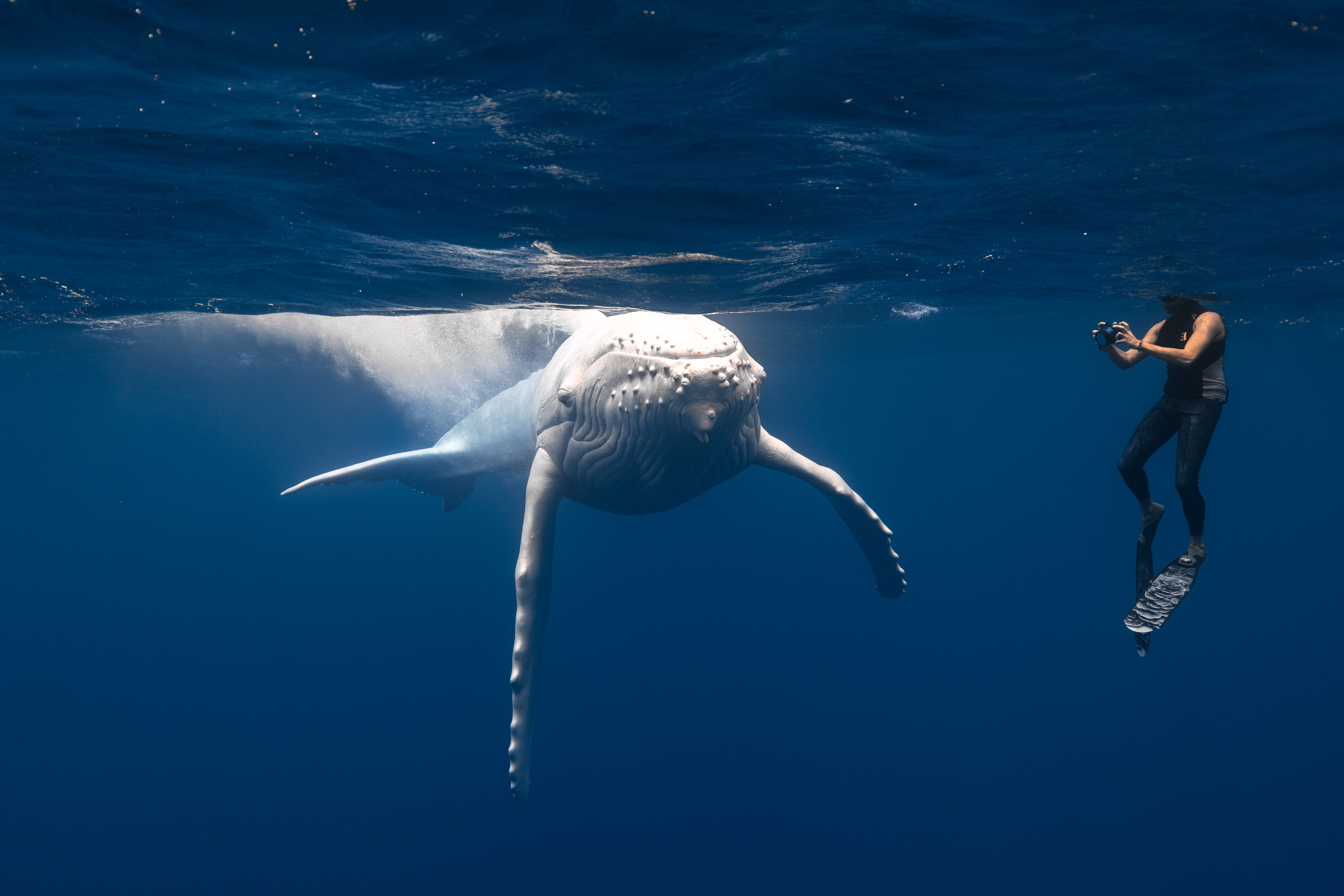A lucky group of swimmers from charity Ocean Culture Life (OCL) were met with a rare treat on a trip to Tonga – an encounter with an all-white humpback whale calf.
The team, who were on one of Tonga’s regulated whale swimming charters, came across the rare calf swimming and playing alongside its mother and a male. This isn’t an everyday event; although humpback whales travel to Tonga each year between July and November to mate and give birth in its warm waters, the chances of seeing one that’s completely white are extremely low.
This female calf was first spotted back in August and is believed to be the first white humpback whale ever to have been born in Tongan waters, somewhere around the island of Vava’u. According to a statement sent to IFLScience by OCL, keeping track of the mother-daughter duo since then has proven “almost impossible”, making this chance encounter an even rarer event.
Jono Allen, the tour guide and photographer called it “an experience of a lifetime and a privilege beyond words.”
According to an Instagram post from fellow wildlife photographer Matt Porteous, Allen was able to gain the trust of the mother humpback whale by mirroring her movements.
“The mother, moved by Jono’s calm energy, slowly lifted her calf to the surface, allowing the young one to interact with us. Witnessing this silent communication felt like part of an ancient ritual, a bridge of understanding between species,” wrote Porteous.

Humpback whale calves already weigh up to a ton when they’re born.
Quite appropriately, the adorable calf has been named Mãhina, which means “moon” in Tongan. Its white coloration could be down to one of two things: albinism or leucism. While albinism is a genetic condition marked by a complete absence of the pigment melanin, leucism is characterized by only a partial lack of pigment.
At the moment, it’s thought that Mãhina may have leucism, as the calf has black eyes – animals with albinism typically have red or pink eyes. “Typically” is the key word here; Migaloo, a male white humpback whale well-known for his appearances in Australian waters also has dark eyes. However, when his DNA was studied, it was found that he did indeed have albinism rather than leucism.
Regardless, Mãhina’s appearance makes for a mesmerizing sight – but Allen expressed concern that the calf’s rare coloring may also make her more vulnerable.
“While the mother is fiercely defending Mãhina and the male escort is also doing a great job keeping her safe, her overwhelming glowing white complexion makes her very susceptible to predators, and we just don’t know if we will ever see her back here again one day,” said Allen in the statement.
“I truly hope we will have the privilege of seeing her return back to Tonga as a fully grown adult white whale.”
Source Link: Watch Mesmerizing Footage Of Rare All-White Humpback Whale Calf